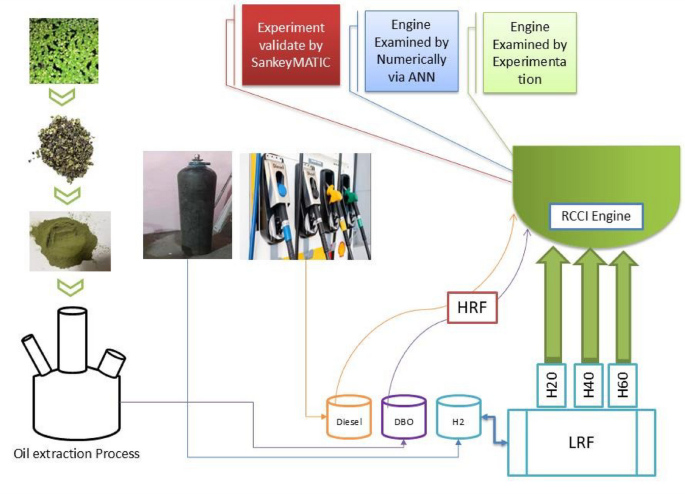Harnessing the Power: Hydrogen and Aquatic Plant Oil for Sustainable Combustion
Key Ideas
- Hydrogen investments globally surpassed $10 billion in 2023, with nations focusing on reducing emissions and enhancing energy security.
- Dual-fuel engines combining hydrogen and aquatic plant oil show improved efficiency and reduced emissions, addressing challenges like NOx formation.
- Aquatic plant oils offer a sustainable solution for biofuels, with benefits such as high energy yields and minimal land use compared to terrestrial crops.
- The research explores the feasibility of using aquatic plant oil in RCCI mode to optimize combustion processes, contributing to sustainable energy solutions.
Hydrogen is gaining traction as a pivotal fuel for the future, with global investments exceeding $10 billion in 2023. Nations are prioritizing hydrogen as a means to reduce greenhouse gas emissions and bolster energy security. Saudi Arabia stands out for deploying hydrogen-powered buses and investing in green hydrogen production through renewable resources like solar and wind energy. The potential of hydrogen extends to transportation and agriculture, with projections indicating it could make up 18% of the world's energy demand by 2050, cutting carbon emissions significantly.
While advancements in hydrogen production methods have been substantial, challenges persist, notably in storage and handling due to hydrogen's flammability. In the automotive sector, dual-fuel engines that combine hydrogen and diesel show notable enhancements in efficiency and emissions reduction. Researchers are exploring biofuels like aquatic plant oils as a complement to hydrogen, offering a sustainable solution for internal combustion engines.
Aquatic plant oils present an attractive alternative to conventional fossil fuels, with algae biofuels demonstrating high energy yields and minimal land use. The combination of hydrogen and aquatic plant oil shows promise in reducing the environmental impact of internal combustion engines, mitigating issues like NOx emissions. Techniques like Reactivity Controlled Compression Ignition (RCCI) engines are being investigated for their potential to optimize combustion processes, leading to higher efficiency and lower emissions.
As the demand for green biofuels rises, the synergy between hydrogen and aquatic plant oil emerges as a sustainable approach to energy challenges. The research discussed emphasizes the importance of exploring innovative solutions like aquatic plant oils in tandem with hydrogen to foster environmentally friendly energy alternatives.
